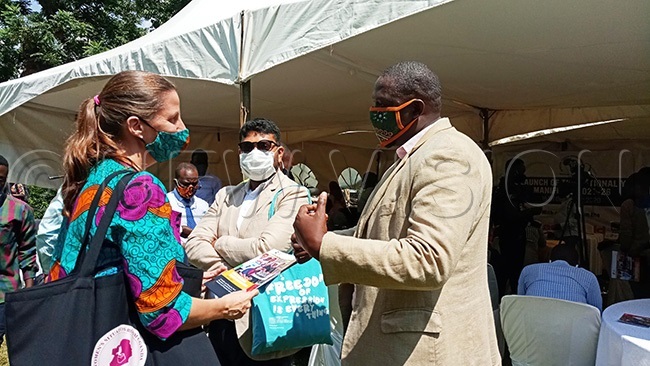National youth manifesto launched
LEADERSHIP |
The national youth manifesto has been launched, aimed at contributing to a peaceful and prosperous Uganda.
The 2021-2026 manifesto was developed by the Youth Coalition on Electoral Democracy.
According to Martin Wanzala, the executive director of African Youth Development Link, the manifesto amplifies the voices of youth on issue-based elections as a foundation for a credible electoral process, which is a prerequisite for democratic maturity in Uganda.
He explained that the National Youth Manifesto 2021-2026 was developed through a nation-wide consultative process involving the youth leaders and the young people in their diversities.
He said the review of the 2016-2020 youth manifesto was carried out to build on the achievements while underscoring the challenges.
The youth manifesto highlights the priorities the next government should pay attention to, among them, youth unemployment, youth participation in decision making, education and sports, climate action and youth-friendly cities, and others.
On unemployment, the youth want the energy ministry to amend the Mining Act 2003 to provide youth participation in the extractive industry and the ministry of finance should consider affirmative provisions for youth participation in the ongoing operation wealth creation and post COVID-19 economic response.

"Youth will directly benefit from these amendments because they constitute the majority of artisanal and small-scale miners," Wanzala said.
Regarding youth in agriculture, they want the ministry of science and technology to increase investments in agribusiness incubation centres to enable the young people across the country to access modern agribusiness equipment and technical advisory services.
Other recommendations contained in the youth manifesto include; the ministry of gender should create a culture capital fund to build and renovate public libraries, museums, and galleries across the country to enable youth access to culture and support youth in creative arts, the abolition of electoral college system on the election of youth members of parliament in preference to adult suffrage, they also want nomination fees for both members of parliament and presidential to be reduced from sh3m and sh50m, respectively to sh200,000 and sh2m.
On education and health, the youth want the education ministry to implement an information communication technology policy of providing each secondary student with a laptop free of charge while the ministry of health should support the production and distribution of re-usable pads to unprivileged school-going girls.
The Democratic Governance Facility representative Nicole Bjerler urged the political parties and the subsequent government to take action and incorporate the youth aspirations and priorities contained in the manifesto.
Fred Ngabirano, the commissioner for youth and children affairs commended the youth manifesto, saying it's in line with the government's policies but advised them to work with respective ministries, departments, and agencies.